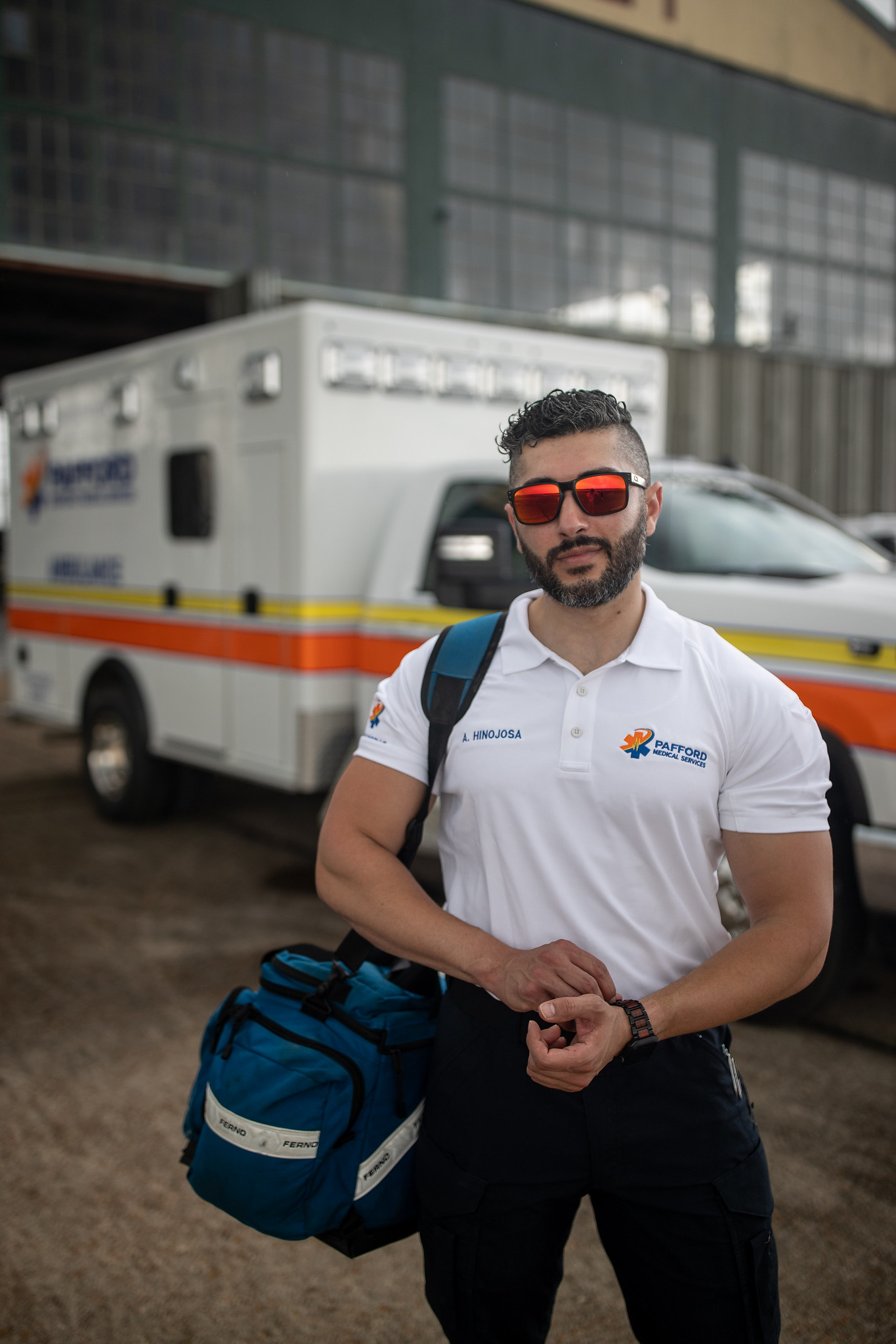Communication Specialists
Summary
| Title: | Communication Specialists |
|---|---|
| ID: | 1331 |
| Pafford EMS: | Canadian County |
| Division/Department: | Communications Center |
| State: | Oklahoma |
Description
911 COMMUNICATION SPECIALISTS
Pafford EMS is accepting applications for entry level Call Takers/Dispatchers for our Central Oklahoma Pafford Communications Center. This Communication Center will service Canadian and Oklahoma
Counties. The communication center will process 911 and non-emergency requests for Emergency Medical Services.The center provides dispatch and support services to the fleet of Pafford EMS ground
on a 24 hour basis, 365 days per year. Applicants must be professional, mature, team oriented and customer service driven. Pafford EMS will provide all necessary training for entry level applicants.
This is truly an exciting job opportunity, where no two days are the same and the staff enjoys the ability to help others in their greatest time of need.
ENTRY LEVEL POSITION - paid training and certifications provided to applicants who meet the minimum requirements outlined in the job summary.
Reports to: Communications Manager
MINIMUM REQUIREMENTS: Education: High School Diploma or equivalent. EMT certified preferred
Experience: Work or volunteer experience, where public contact via telephone, computer use and data entry were part of the responsibilities.
DESIRABLE QUALIFICATIONS: Work experience preferably in a customer service or public relations environment and the ability to speak and understand English for effective communication
with callers. Ability to speak a foreign language is a bonus. An outgoing, positive personality and professional work ethic is essential. The desire and willingness to be part of a team.
Candidates who receive contingent employment offers wil be required to pass, prior to the start of training, a criminal background check and drug screening test.
Pafford EMS is accepting applications for entry level Call Takers/Dispatchers for our Central Oklahoma Pafford Communications Center. This Communication Center will service Canadian and Oklahoma
Counties. The communication center will process 911 and non-emergency requests for Emergency Medical Services.The center provides dispatch and support services to the fleet of Pafford EMS ground
on a 24 hour basis, 365 days per year. Applicants must be professional, mature, team oriented and customer service driven. Pafford EMS will provide all necessary training for entry level applicants.
This is truly an exciting job opportunity, where no two days are the same and the staff enjoys the ability to help others in their greatest time of need.
ENTRY LEVEL POSITION - paid training and certifications provided to applicants who meet the minimum requirements outlined in the job summary.
Reports to: Communications Manager
MINIMUM REQUIREMENTS: Education: High School Diploma or equivalent. EMT certified preferred
Experience: Work or volunteer experience, where public contact via telephone, computer use and data entry were part of the responsibilities.
DESIRABLE QUALIFICATIONS: Work experience preferably in a customer service or public relations environment and the ability to speak and understand English for effective communication
with callers. Ability to speak a foreign language is a bonus. An outgoing, positive personality and professional work ethic is essential. The desire and willingness to be part of a team.
Candidates who receive contingent employment offers wil be required to pass, prior to the start of training, a criminal background check and drug screening test.
| Examples of Work Performed: |
|
|
|
| Work Environment: Incumbents function in a stressful environment and work eight and twelve hour shifts during nights, weekends and holidays. Decisions must be made quickly with little margin of error and consequences are usually seen immediately. Work involves operation of multiple computer terminals, requiring doing several things at once, without getting confused or forgetting an important piece of information. Constant attention to the workstation and its communications equipment limits mobility, except for work breaks. Telecommunicators must conduct themselves with a high degree of professionalism despite frequent contact with individuals who are distraught, angry and sometimes disrespectful. The content and nature of many calls is traumatic and disturbing. Work is carried out in a secured 9-1-1 emergency call center in a controlled, closely supervised, and highly structured work environment. |
| Internal/External Relationships & Impact on Services/Operations: |
| Internal/External Relationships: Daily contact with the public to respond to questions and requests for assistance; with field personnel to provide information; with other public safety agencies to exchange information and requests. Impact on Services/Operations: Duties impact on the Communication Center's ability to deal with both emergency and non-emergency situations in a timely and effective manner: Proper performance of duties results in the dispatch of the appropriate response unit for each situation; increased safety and efficiency of paramedics and other emergency responders due to being provided timely and accurate information; and the accurate maintenance of records and files. Improper performance of duties can result in a negative public image for the agency due to inefficiency in handling calls or poor public relations skills; decreased safety to emergency responders and the public due to the provision of inaccurate information, delays in response or in appropriate dispatch of response units. Consequences of errors range from a simple delay in service to loss of life. |
Knowledge, Skills and Abilities Required: |
Required at Entry:
|
This opening is closed and is no longer accepting applications

